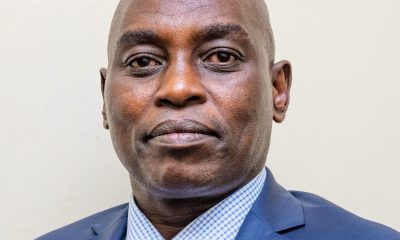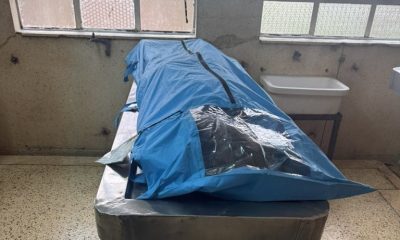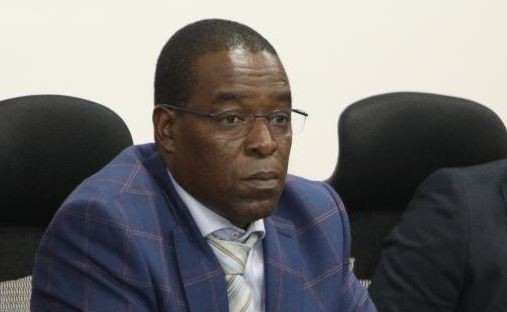Nairobi, Kenya — Once hailed as the crown jewel of East and Central Africa’s healthcare system, Kenyatta National Hospital (KNH) now teeters on the brink of collapse.
A months-long investigation by this publication, bolstered by a whistleblower letter and corroborated by internal documents and interviews, reveals an alarming pattern of corruption, cover-ups, and criminal negligence at the heart of Kenya’s oldest and largest referral hospital.
At the center of the storm is Dr. Evanson Kamuri, the hospital’s Chief Executive Officer, under whose tenure KNH has become a cesspool of procurement fraud, ghost projects, and blatant disregard for public welfare.
The damage is systemic—and the consequences are lethal.
The Oxygen Plant That Nearly Killed Patients
In May 2022, the Ministry of Health awarded a lucrative contract to Biomax Africa Ltd for the installation of a medical oxygen plant meant to generate 8,000 liters per minute.
But what KNH received was a death trap.
The installed plant could barely produce a third of the required oxygen (only 2,800 LPM) and lacked basic functionality to measure oxygen purity—putting thousands of lives at risk.
Despite knowing the plant was defective, KNH management allegedly coerced internal oversight committees to sign off on the substandard facility.
More damningly, the hospital used over Kshs. 100 million of public funds to procure a transformer and generator—costs that were to be borne by the contractor under the tender agreement.
The poorly functioning plant is now consuming more electricity than the rest of the hospital combined, ballooning KNH’s annual electricity bill by Kshs. 500 million, a 120% increase—funds that could have gone to medication, staffing, or patient care.
A Web of Financial Scams and Political Protection
Documents and insider testimony reveal a systematic looting of KNH’s finances.
At least Kshs. 65 million, allegedly received as a “facilitation fee” from the oxygen contractor, was quietly misappropriated.
Sources claim Dr. Kamuri has used high-level political connections—including ties to a former Deputy President—to shield himself from accountability.
Millions of public funds are said to have been diverted to political campaign financing, including for the Azimio la Umoja coalition during the 2022 elections.
“The hospital has been turned into a personal bank,” said a senior staff member at KNH who spoke on condition of anonymity.
“Tenders are given to friends and political allies, and oversight mechanisms are completely undermined.”
The Ghost ERP System
Seven years after the award of a contract to Alltab Africa to implement an Enterprise Resource Planning (ERP) system to digitize hospital operations, the system remains a phantom—less than 40% complete, despite 94% of payments already made.
Even worse, KNH entered into a “maintenance” agreement for the uncommissioned system with a new vendor—at exorbitant costs.
Millions more were paid out in what insiders describe as a deliberate scheme to milk the institution dry, with kickbacks allegedly funneled to Dr. Kamuri, the procurement director, and Ms. Rose Njoroge, a top legal officer linked to attempts to quash investigations by the Ethics and Anti-Corruption Commission (EACC).
Cancer Patients Suffer as Cartels Fight for Control
The hospital’s LINAC (Linear Accelerator) cancer treatment machine has been out of service for months, yet procurement for a replacement has been caught in a web of manipulation.
After a legitimate bidder failed the mandatory evaluation, insiders claim KNH’s procurement leadership is now sabotaging the process to allow their preferred vendor another chance.
Former Health PS Harry Kimutai, who allegedly enjoyed lavish benefits from the KNH budget while in office, is said to have planted loyal operatives in the hospital’s procurement unit.
One name repeatedly mentioned in connection with multiple scandals, including the ERP saga, is Mr. John Miring’u, a procurement officer alleged to be part of a longstanding corruption network within the institution.
Breach of Public Trust
Under Article 73 and Chapter 6 of the Constitution, public officials are expected to uphold integrity, transparency, and accountability. But KNH leadership has done the opposite.
“KNH has become the embodiment of everything wrong with public service,” said an anti-corruption investigator familiar with the ongoing probe. “What we’re seeing here is not incompetence—it’s organized theft.”
A Plea for Action
Calls are growing louder for immediate intervention. Senior medical staff and whistleblowers are urging Health Cabinet Secretary Aden Duale and Principal Secretary Mary Muthoni to dismantle the KNH cartel, beginning with the removal and prosecution of top executives linked to the rot.
“The survival of Kenyatta National Hospital, and indeed public healthcare in Kenya, hinges on swift and decisive action,” reads a letter submitted to the EACC and Ministry of Health.
The agency has yet to announce a formal investigation into the allegations, but internal sources confirm that preliminary inquiries have begun.
The Cost of Inaction
For ordinary Kenyans—especially the poor who rely on KNH for affordable healthcare—the cost of this corruption is measured not in shillings, but in lives lost due to substandard care, delayed treatment, and misallocated resources.
As one cancer patient told us, “They keep saying the machine is coming, but every month we wait is another month closer to death.”
The time for reports and memos is over. Kenyans demand answers. And justice.
Kenya Insights allows guest blogging, if you want to be published on Kenya’s most authoritative and accurate blog, have an expose, news TIPS, story angles, human interest stories, drop us an email on [email protected] or via Telegram

 Business5 days ago
Business5 days ago
 News1 week ago
News1 week ago
 Investigations2 weeks ago
Investigations2 weeks ago
 Investigations1 week ago
Investigations1 week ago
 News2 weeks ago
News2 weeks ago
 Business1 week ago
Business1 week ago
 Politics2 weeks ago
Politics2 weeks ago
 News2 weeks ago
News2 weeks ago



















